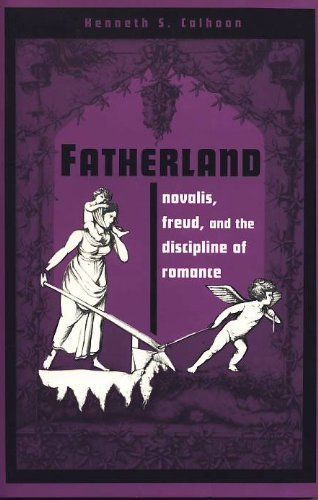
Fatherland Novalis, Freud, and the Discipline of Romance
"Fatherland analyzes the origins of German Romanticism and the works of Novalis (Friedrich von Hardenherg, 1772-1801). In his introduction, Kenneth Calhoon writes, "This study examines Romanticism and psychoanalysis in terms of a shared economy of longing and disappointment of which mourning is a profound index."" "Whereas most recent studies of Novalis have concentrated on his poetic and philosophical theories, Calhoon explores the psychological implications of his writings. He places Freud and Novalis in the debate currently raging in Germany about the legacy of the Enlightenment. Instead of grounding his research on Freudian theory itself, Calhoon focuses on a radicalization of the Enlightenment's quest by diverting attention to those regions of the mind where it still seemed possible to choose one's own parents. "Family Romance," Freud's image for describing how children who have grown to doubt the identity of a father and idealize their origins through fantasies of heroic illegitimacy, suggests the emplotment of such identity crises as Romantic Journey. As such, it provides a map for reading Novalis's novel Heinrich von Ofterdingen, in which the father - as fatherland - is rediscovered only after an elaborate circumnavigation of the maternal body." "This book addresses, in addition to the writings of Novalis and Freud, works by Coleridge ("Kubla Khan"), Goethe ("Erlkonig," Wilhelm Meisters Lehrjahre), Joyce (A Portrait of the Artist as a Young Man), Lessing (Nathan der Weise, Die Erziehung des Menschengeschlechts), and P. O. Runge (Fall des Vaterlands)."--BOOK JACKET.Title Summary field provided by Blackwell North America, Inc. All Rights Reserved